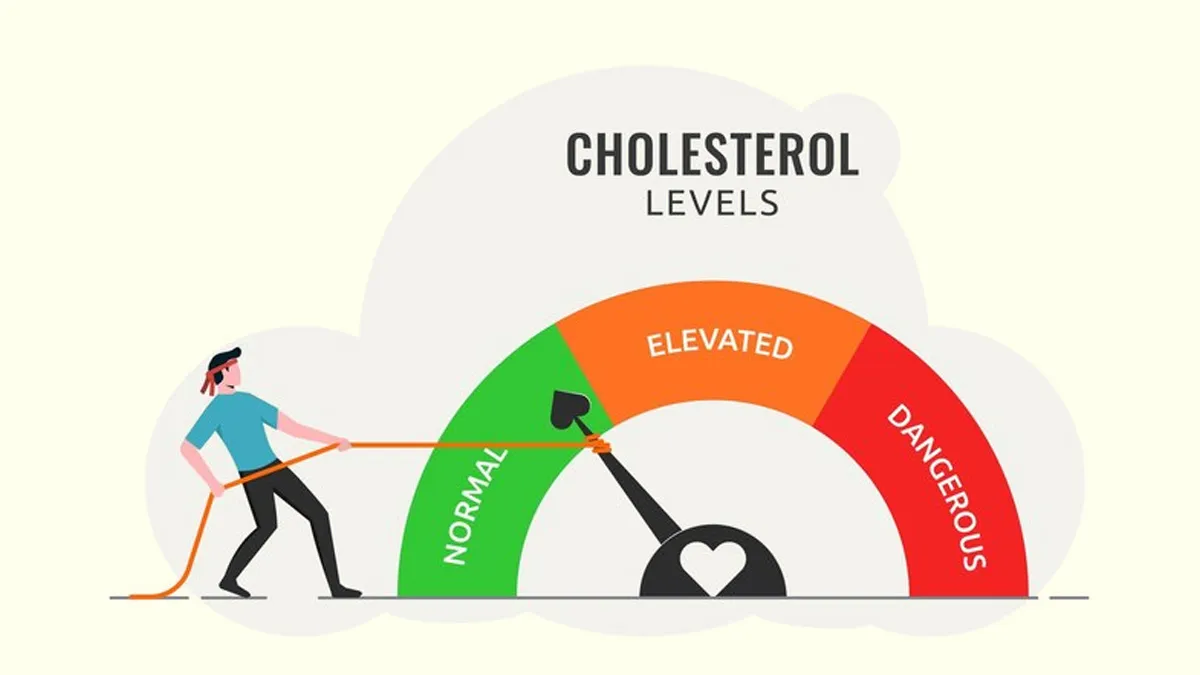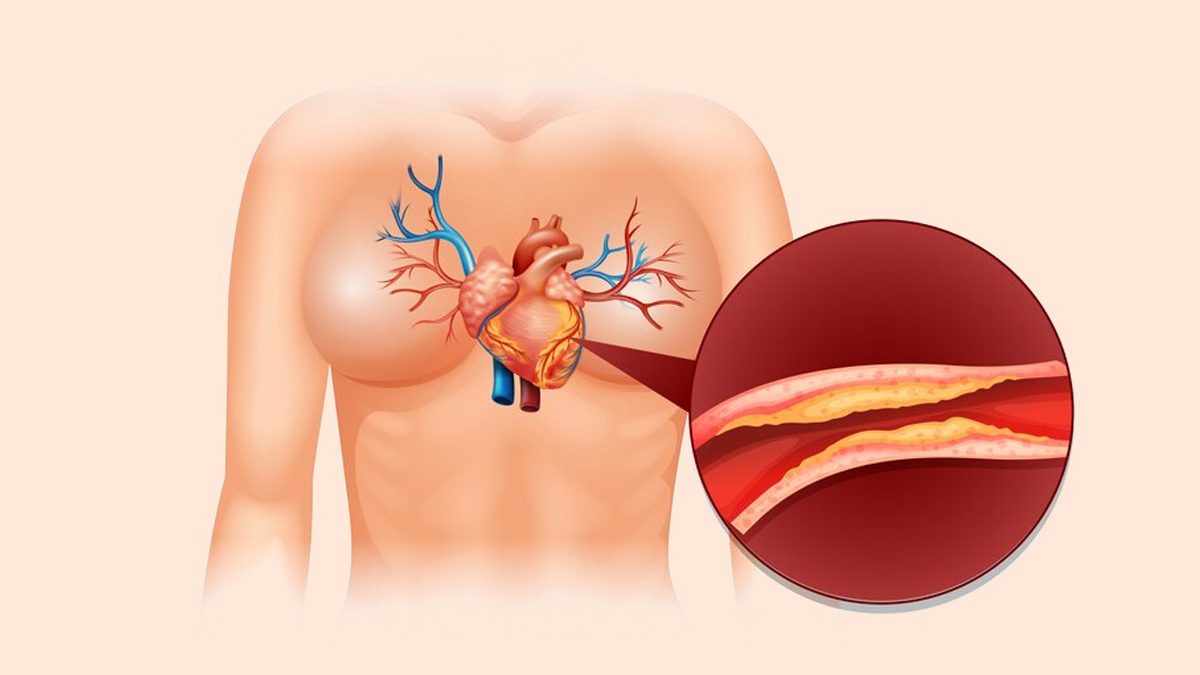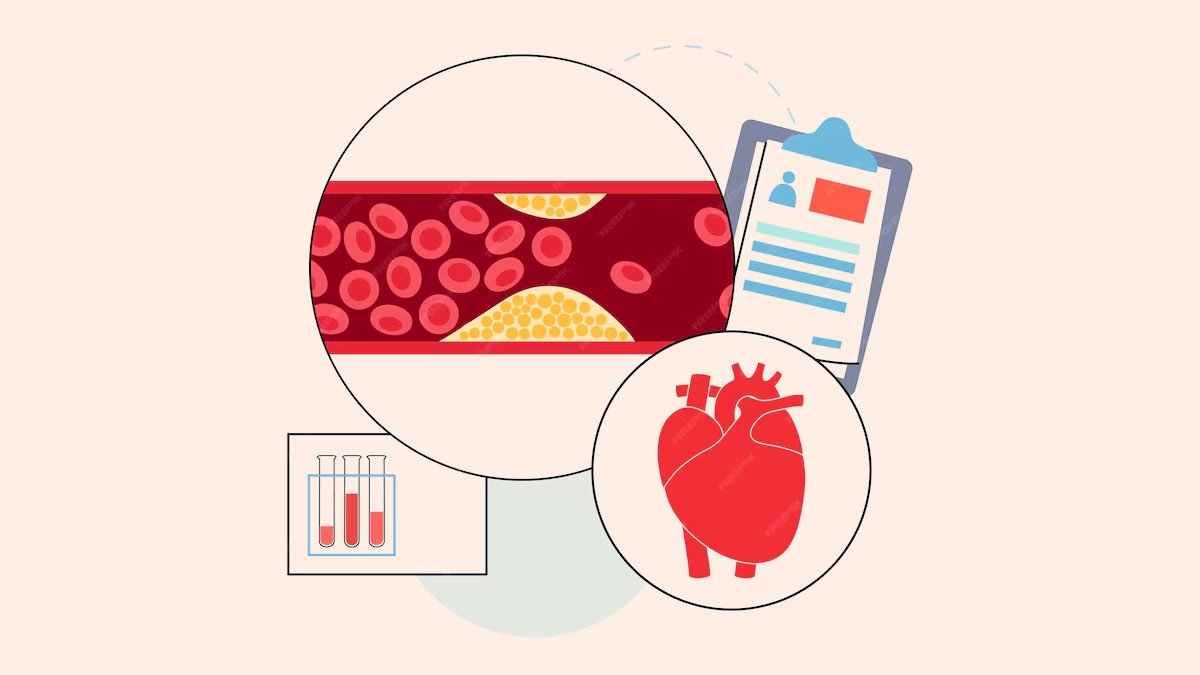
Cholesterol plays a critical role in the body, from building cell membranes to producing essential hormones. However, when its levels go unchecked, it can contribute to serious health issues like heart disease and stroke. As we age, factors like lifestyle, hormonal changes, and underlying conditions can influence cholesterol levels, making regular monitoring a crucial part of preventive healthcare.
Table of Content:-
To understand how much should your cholesterol levels be as per your age, OnlyMyHealth team interacted with Dr Nadhia, MBBS, Physician, Canada. Cholesterol is often misunderstood as merely a health risk, but it plays a vital role in the body's overall functioning. Dr Nadhia explains, “Cholesterol is a waxy, fat-like substance found in every cell of the body, playing a critical role in various functions, such as building cell membranes, producing hormones, and aiding digestion. While cholesterol is essential for survival, excess levels can accumulate in blood vessels, leading to blockages that increase the risk of heart disease and stroke.”
Cholesterol travels through the bloodstream via lipoproteins and is categorised into three types:
Low-Density Lipoprotein (LDL) - Commonly known as "bad" cholesterol, which can lead to plaque buildup in arteries.
High-Density Lipoprotein (HDL) - The "good" cholesterol, helping remove excess cholesterol from the bloodstream.
Triglycerides - A type of fat that provides energy but can be harmful in high amounts.
Maintaining a healthy balance between these components is crucial, and the ideal levels vary by age, gender, and overall health. Let’s explore the age-wise cholesterol guidelines to help you stay healthy at every stage of life.
Children and Adolescents (Ages 2–19)

Even at a young age, cholesterol monitoring is crucial, particularly for children with a family history of heart disease. According to Dr Nadhia, “For children, the ideal total cholesterol should be under 170 mg/dL, LDL levels below 110 mg/dL, and HDL above 45 mg/dL. Early interventions, such as promoting a balanced diet and physical activity, are key to preventing long-term cardiovascular issues.”
Healthy habits during childhood lay the foundation for a lifetime of good heart health. Encourage regular exercise, a diet rich in fruits, vegetables, and whole grains, and limited intake of sugary or processed foods.
Also read: Are High Cholesterol Signs Different In Winter? Here's What You Need To Know
Young Adults (Ages 20–39)
In young adulthood, lifestyle choices begin to take a significant toll on cholesterol levels. Here are the recommended ranges:
- Total Cholesterol: Below 200 mg/dL
- LDL Cholesterol: Ideally under 100 mg/dL
- HDL Cholesterol: Above 40 mg/dL for men, above 50 mg/dL for women
- Triglycerides: Under 150 mg/dL
“Regular physical activity, a diet low in saturated fats, and maintaining a healthy weight can help sustain these levels,” shares Dr Nadhia. This is also the time to quit smoking and limit alcohol consumption, both of which can negatively impact HDL levels.
Middle-Aged Adults (Ages 40–59)

As metabolism slows down, middle-aged adults often experience rising cholesterol levels. The same general targets apply, but this age group should be especially vigilant.
According to Johns Hopkins Medicine, by the age of 50, hormonal changes, particularly in women post-menopause, can lead to increased LDL levels. Dr Nadhia notes, “More frequent screenings are advisable during this period. Lifestyle modifications can still make a difference, but some individuals may require medications like statins based on their risk profile.”
Incorporating healthy fats (such as those from nuts and fish), fibre, and plant sterols can help manage cholesterol levels effectively.
Also read: Cholesterol And Hormones: Why Women Need To Pay Attention
Seniors (Ages 60 and Above)

For older adults, managing cardiovascular risk takes precedence over strictly adhering to cholesterol targets.
LDL Cholesterol: Under 100 mg/dL remains ideal.
HDL Cholesterol: Above 50 mg/dL is optimal.
Triglycerides: Should stay below 150 mg/dL.
For seniors with chronic conditions such as diabetes or hypertension, customised cholesterol goals may be set by a healthcare provider. Dr Nadhia advises, “The focus for seniors is on reducing the overall risk of heart disease through a combination of medication and lifestyle management.”
Conclusion
Cholesterol management is a lifelong commitment. Regular screenings, starting from childhood, are vital to understanding your risk profile. Dr Nadhia emphasises, “Discuss your results with your healthcare provider, who can guide you based on your personal risk factors and medical history.”
Healthy lifestyle choices form the cornerstone of cholesterol control. A diet rich in whole foods, regular physical activity, maintaining a healthy weight, and avoiding tobacco use are powerful tools in preventing high cholesterol and its associated complications.
Also watch this video
How we keep this article up to date:
We work with experts and keep a close eye on the latest in health and wellness. Whenever there is a new research or helpful information, we update our articles with accurate and useful advice.
Current Version